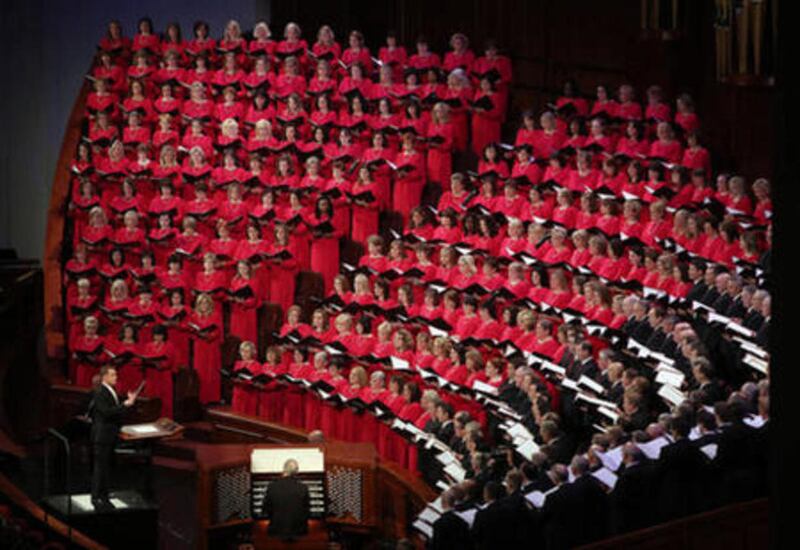Editor's note: “The Spoken Word” is shared each Sunday during the weekly Mormon Tabernacle Choir broadcast. This will be given July 17, 2016.
Written by the people and for the people, folk music is appropriately named; it truly is the music of the folks — the common people, even the family. When people share their traditions and values through music, they create a powerful connection with other human beings.
We come to associate the music with the feelings it inspires, and quite often, we want to share that music with others. And so folk music continues to thrive. One generation after another shares the songs that have chronicled their lives.
Perhaps this is why parents sing to their children the same lullabies that their parents sang to them. This is why the special occasions in our lives are so often marked by melodies we grew up singing. Who doesn’t remember tunes learned around campfires or on family road trips? Or the songs that give voice to our joy or our sorrow when emotion needs to find its way to the surface? Sometimes an enduring folk song may be inspired by social and political events. And some of the world’s most heartfelt music is best described as folk hymns — sacred words that share the stories and sentiments of religious faith.
One woman associates a certain folk hymn with her family’s identity. Even though her grandparents have long since passed away, whenever she encounters the hymn, she hears them singing it, their instruments playing it. Somehow it has become more than just a song for her; it’s a way she can connect with her family, her family’s story and her heritage.
Folk songs and hymns do more than just express our culture — they help create it. Often, no one knows who originally wrote the words or the tune, but that’s part of their power. In a way, everyone takes ownership of folk music: The melody becomes ours, and the lyrics tell our story and express our feelings of the heart. One generation after another claims the song as its own, even though it originated in another time and place. That’s what powerful music does — it transcends time and place to unite the human family.
Tuning in ...
The “Music and the Spoken Word” broadcast is available on KSL TV, KSL Radio 1160 AM/102.7 FM, ksl.com, KSL X-stream, BYU-TV, BYU Radio, BYU-TV International, CBS Radio Network, Dish Network, DirecTV, Sirius XM Radio (Channel 143), mormontabernaclechoir.org and youtube.com/mormontabchoir. The program is aired live at 9:30 a.m. MDT on many of these outlets. Look up broadcast information by state and city at musicandthespokenword.org/schedules.

